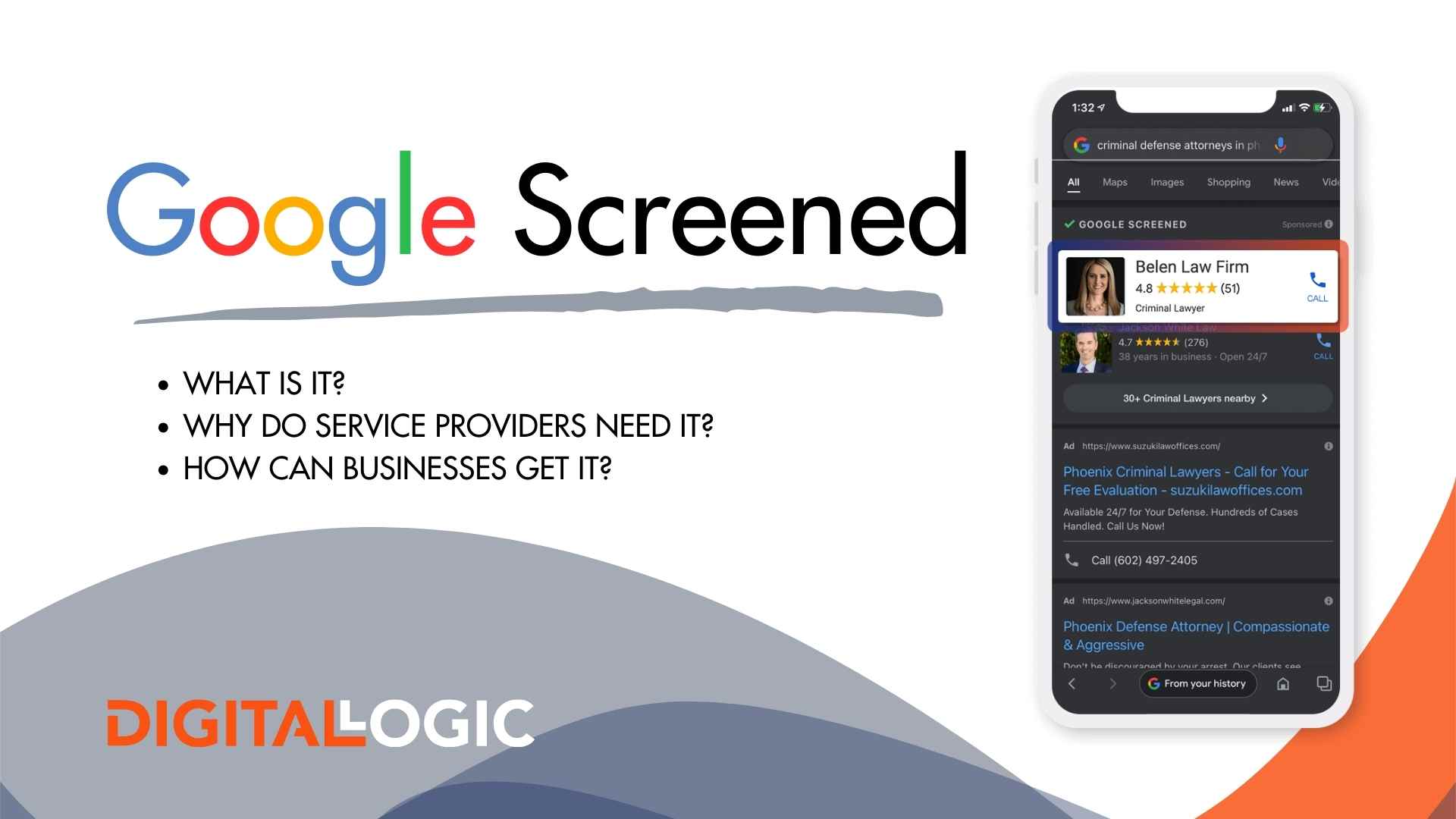How to Write for SEO
Table of Contents
ToggleWe’ve spoken to many business owners who have done their fair share of research in terms of SEO writing, with the goal of having their websites outrank the competition. Many websites provide information on topics, such as “how to write SEO content”. With most of these articles or tutorials, the writer gives the reader a sense that SEO is a task that they can simply “pick up” during his or her lunch break or after work hours.
To be completely transparent, these posts are misleading, at best.
We do understand the small business owner’s desire to pick up a few SEO strategies, such as writing SEO content, without having to hire an outside digital marketing agency. Many times, business owners feel as if an SEO budget simply isn’t in the cards for them, at this time.
But, writing for SEO isn’t just learning the process of how to write for SEO.
Instead, you must learn how to know what information your audience wants. You must determine which of these you can actually use to convert searchers into paying customers by understanding search intent. And, before your content will even rank, you must learn how to interlink your texts properly using the correct anchor text on those internal links, as well as how to conduct backlink outreach, so that other sites will link to your new content.
Learning how to write for SEO is quite the undertaking. You’ll need to invest in some programs to help you along the way. But, if you’re dedicated to the cause, we’ll do our best to explain the process, including the ugly parts. This way, you can make an informed decision on whether or not writing SEO content is something you can add to your toolbelt!
We’ll start with the basics.
What is SEO?
What is SEO, and how does it work?
If you’re trying to learn how to write for search engines, you probably already have a good idea of what SEO is, at its core.
When you search for something, you’ll see a list of various websites that have information pertaining to your search query. These sites often have similar titles and include a catchy meta description in the hopes that their title tag and meta description will entice the searcher to click on their link, as opposed to the other links that also provide information on the topic.
This assumes that your content is already on the first page of the search engine results.
Search engine optimization is the process of editing your content, whether it be a blog post, service page, or your website’s home page, so that Google or other popular search engines believe that your web page provides the most insightful information on the topic, or as we call it, the target keyword.
How to Write Content for Search Engines
Content writing plays a huge role in the overall SEO strategy a business uses to meet its marketing goals. To reach your target audience, you must extensively plan before you can even begin to create content.
Understanding How Copywriting Works
SEO writing, or copywriting, is much more than just writing, in general. You could be the best writer in your class or at your job, and the accolade won’t do much for your success with search engines.
Writing SEO content is both an art and a science. You need to be a good writer. Otherwise, your audience will find your content difficult to follow and may start to doubt the validity of your business overall. That is something you don’t want to happen.

Think of an SEO copywriter as a very good salesperson who also knows how to speak to search engines like Google. Every single portion of the SEO strategy has a purpose. This must be executed higher than the competition to outrank them.
The target keyword must stand out in the title tag, meta description, headings, in the photo’s alt text, and in the content itself, without keyword stuffing the page or post. It’s an art and a balancing act, for sure!
Google gives preference to certain key phrases, especially long-tail keyword phrases. You can find popular questions in Google’s People Also Search For section.
To write search-optimized content well enough for it to rank on search engines, you really need to understand the important ranking factors and how to properly optimize your writing, as well.
Using SEO Practices to Write Better Content
In SEO writing, you’re essentially creating content that you would like to show up on the first page of the search engine results. So, for starters, you’ll want to come up with keyword ideas that are useful to your target audience. These keywords should also have the right search intent behind them.
If you offer a service that is fairly easy to learn, such as baking cookies, you wouldn’t want a blog post titled “DIY cookie baking”, for example. That isn’t going to help drive more qualified SEO traffic to your website. Instead, you would want to post something more along the lines of “Cookies for Birthday Parties” or “What are the most popular cookie flavors in [location]?” While both of these topics aren’t directly advertising your goods or services, you can easily find ways to incorporate your photos and pursue potential clients to order from you!
However, if you offer a good or service that has a high barrier to entry or is incredibly difficult to learn, you can write about it, answering popular questions as often as you’d like. Just like we’re doing now.
We know that a reader can watch every YouTube video available, read every post about SEO writing, and genuinely try to figure the process out. Getting quality organic traffic from SEO writing is incredibly difficult. So much nuisance goes along with crafting a successful SEO content strategy. Optimizing for search engines isn’t a step-by-step process at all. Otherwise, every business owner could do it themselves or delegate the task to an in-house employee.
So, here we are…trying to explain the process to the best of our ability.
Writing SEO Content That Ranks
Here are the very basic principles you’ll want to follow if you want your SEO writing to rank in the search results.
Web Page and Site Speed

Google has been using site speed as a ranking factor for over a decade now. If a web page takes longer than 3 seconds to load, you can expect your audience to leave the page.
In the marketing industry, this is called “bouncing”.
You can have beautiful graphics and interesting content. But, if your blog posts take too long to load, your organic traffic will drop, and so will your rankings in the search engine results.
Enticing Headline
The cliche, “Don’t judge a book by its cover,” wouldn’t exist if people, in fact, didn’t practice this act regularly. You wouldn’t visit a doctor in a run-down, creepy-looking building, would you?
The same can be said for your audience. While you want to include your target long tail keywords in your heading, you should do so without your title sounding spammy or boring.
SEO copywriting juggles the art of pacifying Google’s need for structure while ensuring your audience has valuable content behind your link on the search engine results.
For this point, being a better writer will prove to be valuable. It won’t matter as much if you rank number 2 or number 4 on the search results; having better title tags or headlines will encourage the person searching to select your link, more often than not.
Headline Psychology
While including the main keywords in your page title or headline is the most important task associated with this portion of SEO writing, web pages that also use the following psychology have done well in the past:
- Include a number in your title: “10 Ways to Boost Your Content Marketing Strategy.”
- Address the reader: “Ways You Can Boost Your SEO Copywriting.”
- Include a “how-to” text, if applicable.
- Craft your heading to read as a question: “How Can Writing Blog Posts Help Businesses?”
Using one of these tactics may help get your web page a little more organic search traffic, even if your article isn’t the highest ranking on the search results. Also, using a heading or title that uses psychology to attract an audience helps the chances of your content doing well with your social media marketing efforts, becoming earned media as well. Headlines that catch attention are more likely to be shared across social media channels.
Also, try to keep your headline or title tag under 72 characters. This way, your entire title will show in the search results.
High-Quality Content
Obviously, the content itself is a vital aspect of SEO writing. The only reason someone conducts a Google search is if they’re looking for useful and relevant content. Furthermore, Google and other search engines give priority to websites that take part in regular content creation, whether it is through new blog posts and pages or by simply updating existing pages to provide a better fit for an updated Google algorithm.
If you want your content to end up on the first page of Google, rest assured that the content needs to be well-written and match the user intent. We spoke about this previously.
You want to ensure that your keyword research shows that search intent matches your business goals. And you want to write content that naturally includes both the relevant keywords and the related keywords without stuffing the article full of the target keywords.

What is keyword stuffing?
Stuffing keywords includes the main keyword or main keywords over and over, even when it makes the blog post or page harder to read by doing so.
Give Your SEO Copywriting Some Substance
When writing for SEO, you want your content to be long enough that you can include all of the relevant keywords naturally. Short blog posts that include all the keywords necessary to rank often don’t continue to rank well.
Why is this?
Simple. Searchers click on your link, realize that your content isn’t very helpful, leave your site, and click on another link. Google’s algorithm picks up on this and starts penalizing your content as it isn’t helpful for its users.
Understand Your Audience
One of the main aspects of SEO copywriting, for the actual content itself, is genuinely understanding the reader. This is where 90% of business owners or do-it-yourselfers tend to mess up when they write posts.
A business owner should be able to write content about his or her business and have it show up in the search engine rankings fairly easily. After all, no one knows more about the business than they do.
Wrong, wrong, wrong.
This is perhaps the most frustrating aspect of writing for SEO.

We have the same discussion with almost every new client:
- “How YOU search for you is not how others search for you.”
- “The way YOU want to answer that question isn’t helpful to those who actually need the question answered.”
- “You don’t make yourself sound dumb by approaching this subject on a level that the general public can understand.”
More often than not, your industry has a lingo that you’ve grown accustomed to. This especially holds true if you’ve risen to the status of manager or business owner.
The only way for you to really know how exactly your target audience is searching for a product or service in your industry is to use SEO programs, such as Ahrefs or Rank Math.
And this is where another barrier to entry lies. Sure, you can watch a few tutorials on how to use the programs, but you really aren’t going to get your money’s worth unless you use them frequently, like on a daily basis, for months at a time.
We see this problem frequently with law firm SEO, plastic surgeons SEO, and SEO for dentist offices that hire an entry-level marketing assistant, trying to cut out the middle man (i.e., online marketing agencies, such as ourselves). To write content that outranks a professional copywriter’s content, you really need to hire someone who specializes in this area. Or, you need to delegate the task to someone in-house with the understanding that it’s going to take them, at the very minimum, 6 months to a year, full-time, to learn and understand the process of content writing for SEO before they can even begin to start “earning their keep” in this position.
After all, an SEO copywriter will compete to outrank professionals like Digital Logic, who have been writing SEO-friendly content for almost a decade.
Can it be done? Certainly. Is it likely that writing content for your website will outrank your competitors that outsource this task to professionals? Unfortunately, no.
Remember, in the beginning, we said we would include the good and the bad, as well.
It’s critical for you to understand that SEO copywriting has progressed to much more than targeting a primary keyword and blindly writing about it.
Attractive Meta Description
Before you publish your online content, you need to add a meta description. This option doesn’t always come standard on website platforms. So, you may need to install a plugin, such as Yoast SEO, so that you won’t have to code this portion of your content.
Meta descriptions help search engines, like Google, better understand what the content is about. So, you will want to include as many specific keywords that you want to rank for inside your meta descriptions. However, you don’t want your descriptions to sound spammy.
Again, SEO copywriting is truly an art.
You can only fit around 155-160 characters inside your meta description. And you also want to use this space to encourage searchers to click on your link. So, balance this task delicately.
The key to writing meta descriptions that catch the searcher’s attention while appeasing Google at the same time, is understanding the search intent.
Keyword Density
This is sometimes called keyword frequency and is simply the number of times your primary keyword appears on your page.
Many old-school marketing agencies put too much stock in having a specific keyword repeated over and over, inside a post or page. Google’s algorithms have advanced, and they’re able to better understand how informational keywords and relevant pages overlap one another.
While the keyword density does matter, you’ll want to focus more of your efforts on internal linking using the best anchor texts possible, creating unique meta tags, and creating better content, in general.
To create better SEO-friendly content, avoid overusing your target keyword and inserting the keyword into headings that don’t make sense.
Backlinks and Internal Linking
Having links pointing to your page tells Google that your information is more trustworthy.

When you link to one blog or page from another blog or page on your own website, this is called internal linking. Having a good internal linking strategy helps Google understand how your content is connected. This is an important aspect of SEO copywriting.
When other websites link to your blog or page, this is called backlinking. Having links from high authority sites shows Google that others in your industry consider you to be the authority on this subject. The fastest way to get more traffic is to acquire more quality backlinks.
The rules of internal and external links aren’t black and white. This is part of what makes having an experienced SEO copywriter work with your business worth its weight in gold.
Having a professional SEO agency ensures that your content will match your target audience’s needs and the link structure will support that content. The more your content is shared organically, the more traffic you’ll get to your website.
Monitor Your SEO Writing Efforts for Every Page and Blog Post
Nothing in life stays the same. The same holds true for search volume and traffic value. So, as an SEO copywriter, you must stay on top of all your content.
Many times, you’ll need to tweak the details because the keyword you were trying to rank for originally doesn’t have as much search volume as a similar word. Or, sometimes, a new website writes a better article than you and outranks you.
When either of these occurs, you’ll need to reassess your effort and update your blog or page in order for it to start performing again. You can use tools such as Ahrefs or Google Search Console if you have it set up on your website (which we highly recommend). Console will help you understand your conversion metrics (in time), which will allow for optimizing content for more conversions. We call this conversion rate optimization-also an important aspect of writing for SEO.
Sounds exhausting, doesn’t it? It’s a full-time job.
SEO Content Writing Services
At Digital Logic, we’re one of the top SEO agencies. We offer both individual and comprehensive online marketing packages. We use the same strategies (and much more) to provide our clients with exponential increases in organic traffic, over time.
Writing for SEO isn’t something that you can learn overnight. It’s a job that sounds easy enough on paper, but when put into practice, is extremely difficult for even marketers to fully grasp, at times.
Try out these strategies, and if you see that your website still needs some help and want to look into outsourcing SEO service work, look at our monthly SEO packages or give us a call! Our marketing team would love to help!






